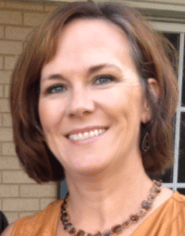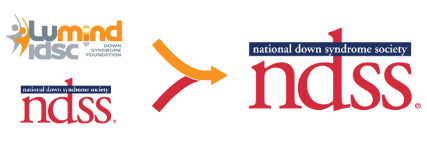I am thrilled to join the LuMind RDS staff. As Director of Development and Research Sponsorship, I will lead the expansion of LuMind RDS’ special events and corporate sponsorship initiatives. I believe growing support for Down syndrome research is the key to improved health and independence for all individuals with Down syndrome.
 Like many of you reading this, I am a parent of a child with Down syndrome. When I learned about my son Colin early on in my pregnancy, I spent time reading about Down syndrome and reflecting in preparation for his birth. Learning about advances in understanding of Down syndrome and progress towards potential treatments gave me hope to be able to help Colin.
Like many of you reading this, I am a parent of a child with Down syndrome. When I learned about my son Colin early on in my pregnancy, I spent time reading about Down syndrome and reflecting in preparation for his birth. Learning about advances in understanding of Down syndrome and progress towards potential treatments gave me hope to be able to help Colin.
I found LuMind RDS when looking for a foundation that was best aligned with my desire to pursue the best life possible for Colin. At LuMind RDS, I found a supportive community where I have been an active volunteer, fundraiser, and have worked hard to raise awareness of the research supported by LuMind RDS. For 4 years, it was also my privilege to be a board member, and I am now excited to join the Team.
When I think about Down syndrome research, I focus on respect for my son Colin and others, not as a rejection of a diagnosis of Down syndrome. Through research, I believe that we can find ways to empower and better sustain those with Down syndrome, throughout their lifetime. For me, this objective and commitment is the ultimate expression of respect for my son Colin and the people we love, who happen to have Down syndrome.
I am grateful that decades ago, parents and families rejected their physician’s notion that their child with Down syndrome would negatively impact their family. Now my son Colin and other children are embraced, and in return, family members receive immeasurable gifts of love. Changes that followed have led to better care, meaningful inclusion, early intervention, and acceptance. This turning point in society, for which I will always be eternally grateful to the great efforts of many advocates and foundations, was profoundly overdue.
We have much more work to do on research for Down syndrome. We now have the tools to make real progress. A lot more is known now about the effects of having an extra chromosome 21. It is a well-documented fact that people with Down syndrome have the toxic amyloid beta plaques (leading to Alzheimer’s) in their brains 20-30 years earlier than the general population. Also, recent studies indicate that people with Down syndrome live in a chronic state of inflammation, potentially due to certain inflammatory genes that are triplicated due to the extra copy of chromosome 21.
I believe that we must commit to understanding at a deeper level the cause of these conditions observed in Down syndrome, while developing appropriate and effective treatments for them to improve their health and independence. I feel this is not merely an opportunity, it is a responsibility we have for our loved ones.
On March 21, 2012 I had the good fortune to attend and present at the first World Down Syndrome Day in the U.S., which was held at the United Nations. It was a profound day for me; meeting so many with Down syndrome who are self-advocates. They talked about how they were pursuing their dreams. A recurring message from these young men and woman was how imperative it is for society to see them as individuals, not as a person with Down syndrome.
Amy Wright, a CNN Hero of the year 2017, declared, “People with disabilities have been in the shadows too long, but no more.” I could not agree more. Learning about advances in understanding Down syndrome and progress in treatment gave me hope that I would be able to help improve Colin’s well being and his future by my actions today.
